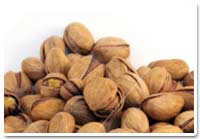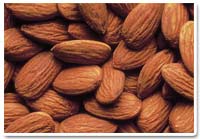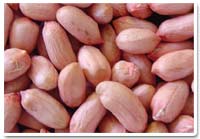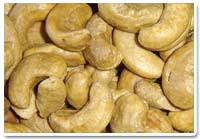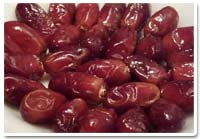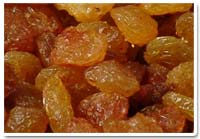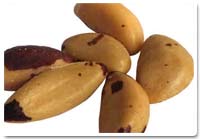Nutrition
GO NUTS ABOUT YOUR HEALTH
If you avoid eating nuts, dried fruits and seeds you will be missing out on a major source of protein, minerals and antioxidant vitamins. They are amongst nature’s richest and healthiest foods, offering significant health benefits.
Nuts, dried fruits and Seeds should be eaten regularly. They contain high levels of essential fatty acids (EFAs), otherwise known as ‘good’ fats.
They are a rich source of other nutrients, especially the amino acids necessary to produce complete and digestible protein and also contain Vitamins A, B, C and E as well as the minerals calcium, magnesium, potassium, zinc, iron, selenium and manganese.
They are so rich in nutrients only a small amount is required each day.
Dried fruits are excellent providers of energy, are low in fat and can be eaten on their own or combined in recipes. They are low on the glycaemic index (GI), which means they are absorbed slowly from the stomach into the bloodstream. They are excellent sources of minerals, being particularly high in iron, potassium and selenium, are high in fibre and Vitamin A and a good natural laxative.
See the chart below for more detailed information on nutritional values of nuts, dried fruits and seeds.
Vitamin A
Vitamin A comes from plants and animals and is not stored in the body. Beta- Carotene is often termed as pro Vitamin A. Vitamin A helps benefit your vision, tissues, skin, teeth, hair, nails and bones in many ways.
Products: peaches, apricots, prunes, almonds, hazelnuts, pecans, pistachio, pumpkin seeds, and sunflower seeds.
Vitamin B-1 (Thiamin)
Thiamin is a water soluble vitamin, meaning any excess is excreted and not stored in the body. It is highly beneficial for the nervous system and one’s mental disposition. It helps maintain healthy nerves and improve memory and mental clarity. Thiamin is also necessary to help convert carbohydrates in food to energy.
Products: sunflower seeds, peanuts, almonds, brazil nuts, cashews, hazelnuts, pecans, pine nuts, pistachios and walnuts.
Vitamin B-2 (Riboflavin)
People have an increased need for Riboflavin during stressful situations and it is the most common vitamin deficiency. Its primary function is to work with other substances to metabolize carbohydrates, proteins, and fats for energy. It has a profound effect on thyroid hormone production, helps in the production of immune cells to fight infection, and aids in transporting oxygen to cells in the body.
Products: almonds, cashews and hazelnuts.
Vitamin B-6
One of the more important vitamins, B-6 performs over 100 valuable functions for the body. According to an American survey, only 1/3 of adults and 1/2 of women get enough B-6 in their diet. B-6 helps convert amino acids into serotonin. It helps red blood cells, makes proteins, and manufactures brain chemicals. B-6 is believed to play a vital role in disease prevention and treatment.
Products: prunes, sunflower seeds, hazelnuts, cashews, peanuts, pistachios and walnuts.
Vitamin C
A potent antioxidant that may prevent premature death from heart disease and cancer. A vital protector of cells. Plays a primary role in collagen formation, which is essential for the growth and reparation of tissue cells, gums, blood vessels, teeth, and bones. Due to its mild antihistamine effects, Vitamin C also strengthens immunity and helps to minimize and/or prevent colds.
Products: brazil nuts and hazelnut .
Vitamin E
Vitamin E is a fat soluble vitamin that is stored in the liver. It is a potent antioxidant that help protects cell membranes from free radicals. Its benefits are enhanced when combined with selenium. It helps protect against cancer and cardiovascular disease. Vitamin E helps improve immune function and slows the aging process.
Products: hazelnuts, sunflower seeds, almonds, peanuts, apricots, brazil nuts and pine nuts.
Calcium
Calcium is one of the most abundant minerals on Earth and in the human body. It plays important roles in signaling biochemical processes in cells, controlling muscle contractions, and building bones. Our skeletal system stores 99% of the body’s Calcium while the remaining 1% floats in the blood stream. Calcium is integral in maintaining skeletal strength and providing structure to bones and teeth. It also plays a crucial role in the transmission of nerve impulses, muscle fibre contractions, and coagulation of blood. It is also essential to help heal wounds and maintain healthy cell membranes.
Products: almonds, figs, brazil nuts, cashews, hazelnuts, pecans, peanuts, pine nuts, pistachio, pumpkin seeds, sunflower seeds and walnuts.
Copper
Copper is the third most abundant trace mineral in the body. Copper serves an important role as a cofactor for enzymes involved in hemoglobin and collagen formation and is involved in incorporating iron into the structure of hemoglobin. Copper works in partnership with iron to make red blood cells and is the major component of the outer coating of nerve fibres and collagen.
Products: peaches, prunes, sunflower seeds, almonds, brazil nuts, cashews, hazelnuts, pecans, peanuts, pine nuts, pistachio, pumpkin seeds and walnuts.
Magnesium
Magnesium is a mineral that is abundantly found in nature. The human body contains about 1 ounce of magnesium comprised mostly in the bones. It is one of the most important anti-aging minerals and aids in the absorption of Calcium and Vitamin C in the body. It helps convert blood sugar into energy and helps to regulate nerve and muscle functions.
Products: peanuts, almonds, sunflower seeds, cashews, walnuts, brazil nuts, hazelnuts, pecans, pine nuts, pistachios, walnuts, dates, prunes and pumpkin seeds.
Potassium
Potassium is the third most abundant mineral in the body and is located inside muscle cells. Potassium is considered an electrolyte . It assists in muscle contractions and helps maintain the appropriate levels of fluid along with the proper electrolyte balance in cells. It is very important in maintaining a normal heartbeat and heart rhythm.
Products: raisins, figs, prunes, sunflower seeds, pistachios, apricots, peaches, pumpkin seeds, almonds, brazil nuts, cashews, hazelnuts, pecans, peanuts, pine nuts and walnuts.
Phosphorus
The second most abundant mineral in the body. Approximately 85% of all phosphorus is found in the bones. The remaining 15% is found in the blood and fluid in and around cells. The main use for phosphorous in the body is to aid in the strengthening of bones and teeth. However, phosphorus is used by almost every cell in the body. It is involved in almost all physiological chemical reactions in the body.
Products: peanuts, pine nuts, sunflower seeds, almonds, brazil nuts, cashews, hazelnuts, pecans, pistachio, pumpkin seeds and walnuts.
Selenium
Selenium is a mineral and important nutrient that helps to fight heart disease and cancer. Selenium works best when paired with Vitamin E. Selenium is an antioxidant that helps slow down aging by oxidation. Approximately half of the body’s selenium in males is found in the testes and the ducts surrounding the prostate gland. Selenium helps detoxify toxic metals in the body such as mercury and arsenic.
Products: brazil nuts, cashews, sunflower seeds, almonds, hazelnuts, pecans, peanuts, pine nuts, pistachio and walnuts.
Zinc
Zinc is probably the most versatile mineral in the body. It helps maintain a strong immune system to fight colds and flu, helps to heal wounds, fuels DNA production, and helps create the proper function of the male reproduction system.
Products: peanuts, pecans, cashews, sunflower seeds, pine nuts, walnuts, pumpkin seeds, almonds, brazil nuts, hazelnuts and pistachio.
Iron
Iron is one of the most essential minerals needed. It is present in every cell in the human body and is needed for the production of hemoglobin. Deficiencies in iron are common in women. Iron is very important to many immune system functions.
Products: apricots, prunes, raisins, pumpkin seeds, sunflower seeds, cashews, hazelnuts, pine nuts, pistachio, walnuts, peaches, almonds, brazil nuts, pecans and peanuts.
Omega-3
Omega-3 is the name given to a group of polyunsaturated fatty acids. Omega-3 is comprised of 3 fatty acids ALA, EPA, and DHA. Scientists have concluded that the best source of these fatty acids is from food. Omega-3 fatty acids play an integral role in cardiovascular health and those who have cardiovascular disease. Omega-3 has also been shown to help lower triglycerides, slightly lower blood pressure, and decrease the growth of plaque in the heart arteries.
Products: walnuts
Vitamin K
Vitamin K is found in plants and is produced in the body in the intestines. Vitamin K is used in the body to help control blood clotting and aids the protein found in the liver that controls the clotting. Vitamin K also plays a role in bone formation and repair. In the intestines, it helps assist in converting glucose to glycogen.
Products: cashews, figs, peaches, pears, pumpkin seeds, hazelnuts and pine nuts.
Manganese
Manganese is an antioxidant nutrient that is important in the breakdown of amino acids and the production of energy. Manganese is essential for the metabolism of Vitamin B-1 and E. It is also a catalyst in the breakdown of fats and cholesterol.
Products: almonds, brazil nuts, hazelnuts, peanuts, pecans, pine nuts, pistachios, walnuts, figs, sunflower seeds and pumpkin seeds.






